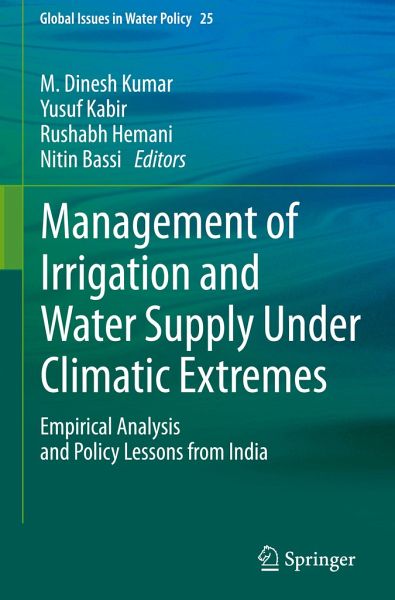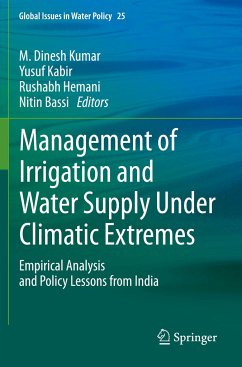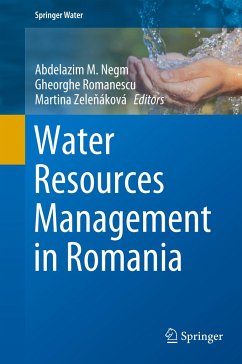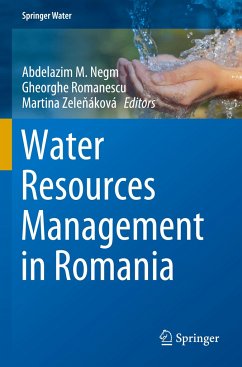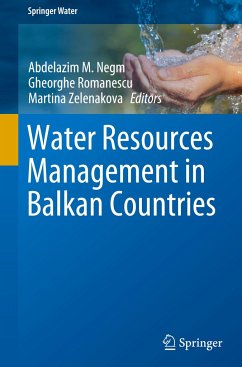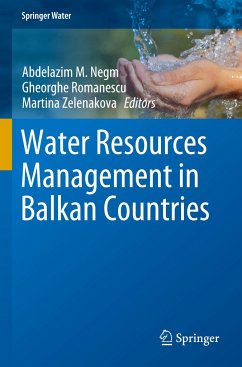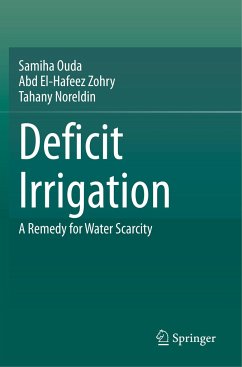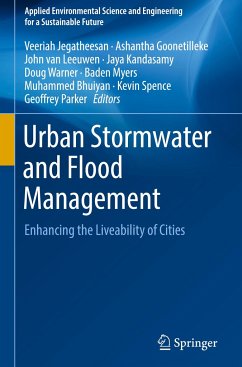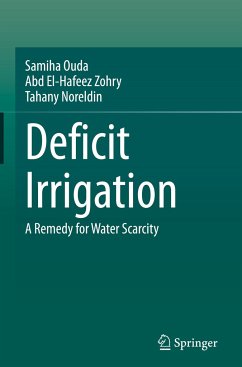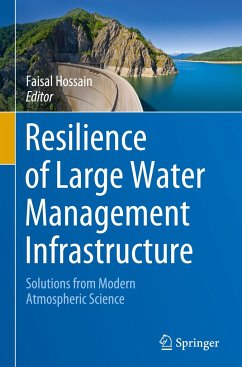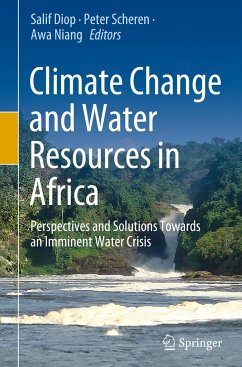M. Dinesh Kumar did his B-Tech in Civil Engineering in 1988, M. E. in Water Resources Management in 1991 and Ph. D in Water Management in 2006. He has 27 years of experience in the field of water resources. He is the Executive Director of the Institute for Resource Analysis and Policy in Hyderabad since 2008. He has offered consultancy services to many international agencies, including the World Bank (India and Sri Lanka offices), Asian Development Bank (ADB), US AID, Australian Council for International Agricultural Research (ACIAR), UNICEF; international consulting firms such as Deltares (Holland) and Sheladia Associates (US), and many Indian government agencies (in Gujarat, Maharashtra, Andhra Pradesh and Kerala). He has nearly 200 publications to his credit, including seven books, seven edited volumes, several book chapters, and many journal articles. He has published in many international peer-reviewed journals viz., Water Policy, Energy Policy, Water International,Journal of Hydrology, Water Resources Management, Int. Journal of WRD and Water Economics and Policy. He is currently also Associate Editor of Water Policy and Member of the Editorial Board of Int. Journal of WRD. His research works of global relevance are: integrated water resources management in river basins; water use efficiency and water productivity in agriculture; global virtual water trade; methodology for assessing global water & food security challenges; climate risk in WASH; and socio-economic impacts of large water systems. Yusuf Kabir's areas of specialization are Rural Drinking Water Supply and Sanitation, Environment, Climate Change Adaptations, and Sustainable Development. He has two post-graduate degrees and had attended several International certificate courses. His first master's degree is in Environment Engineering and Management from India's premier management Institute: Indian Institute of Social Welfare and Business Management (IISWBM), and the second one is in Sustainable Development from Staffordshire University, U.K. Yusuf is a Commonwealth scholar. He has several publications in International Journals, Papers, and Books on water and sanitation issues and State Level Committee Members of different state bodies and knowledge management platforms of CSR. He is working in the Water, Sanitation and Environment sector for the last 20 years. He is with UNICEF India since 2007. Prior to that worked with organizations like DFID, National Level NGOs, Social and Marketing research consultancy firms like GFK-MODE, ORG India Pvt Ltd. A commonwealth scholar and a trained policy writer from Central European University, Budapest, Hungary where had undergone a summer course on 'Evidence-Based Policy Formulation'. Rushabh Hemani is a development professional with over fifteen years of comprehensive work experience in the field of Water, Sanitation and Hygiene (WASH). He is currently working as WASH Specialist in UNICEF Rajasthan state Office and has also worked in Gujarat, Chhattisgarh and Assam Offices of UNICEF in India. His core area of work in UNICEF includes water safety and security, climate-resilient WASH pilot, reducing open defecation, WASH in schools, pre-schools, health centres as well as social and behavior change communication. He has worked across several partners including Government, civil society organizations, academic institutions, and other development partners. He has been actively engaged in the development of various knowledge management products including process documentation, monograph and technical papers on xxii issues concerning WASH. Some of his work has been published as journal papers and also a chapter in a book. Nitin Bassi is a Natural Resource Management specialist (M. Phil) having nearly 13 years of experience undertaking research, consultancy, and training in the field of water resource management. Presently, he works as a Principal Researcher with the Institute for Resource Analysis and Policy (IRAP) and is based at their Liaison Office in New Delhi. His areas of work include River Basin and Catchment Assessment, Water Accounting, Institutional and Policy Analysis in Irrigation and Water Supply Management, Water Quality Analysis, Climate Variability, and Climate-induced Water Risk Analysis and Wetland Management. He has been engaged as a consultant/specialist in projects, research studies, and assignments supported by various national and international organizations. Some of these organizations include European Commission, World Bank, GIZ, DFID, WRG 2030/IFC, UNICEF, WWF, IWMI, SRTT, and SDTT. He was involved as one of the specialists for establishing the first phase of the 'India-EU Water Partnership' between EU and Ministry of Water Resources, River Development & Ganga Rejuvenation (MoWR, RD & GR), Government of India. In its second phase, he is engaged as one of the specialists for providing advisory services for the EU/BMZ co-financed action on 'Development and implementation support to the India-EU Water Partnership (IEWP)' and 'Support to Ganga Rejuvenation (SGR)'. He has co-edited two books that were published by Routledge UK, and has several book chapters, and peer-reviewed journal articles. Also, he regularly reviews manuscripts for Water Policy; International Journal of Water Resources Development; Journal of Hydrology; and Journal of Hydrology: Regional Studies
